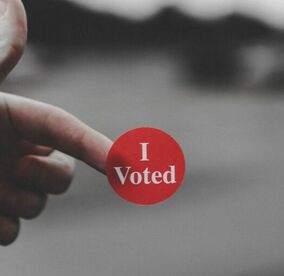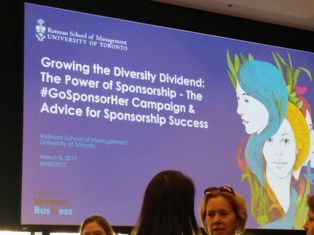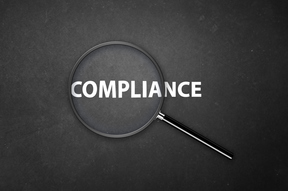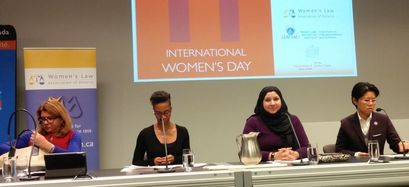 This month in Ontario, lawyers and paralegals will vote for the next set of “Benchers” at the Law Society of Ontario (LSO). For those unfamiliar with the term, Benchers are the board of directors at the LSO, the regulatory body that governs lawyers and paralegals in Ontario. Bencher terms are for four years. Eligible voters can vote for up to 20 lawyers in the Toronto region and 20 lawyers outside of Toronto. There is a common misconception that Benchers represent lawyers, much like a member of parliament represents their constituents. Benchers actually represent the interests of the public and regulate the profession. Still confused? Precedent Magazine published a helpful article: What do Benchers at the Law Society of Ontario Actually Do? For this election my Twitter and LinkedIn feeds are filled with #BencherElection2019 posts, conversations, podcasts, endorsements, etc. Looking at this level of engagement, one might think that every lawyer in Ontario is super keen to vote and discuss the pressing issues facing our profession. Unfortunately, this is likely far from the truth. Social media platforms, and especially Twitter, can be massive echo chambers. While lawyers on social media appear to be engaged in the election, the historical data on voter turnout suggests that the majority of lawyers are really apathetic. Large Firm Lawyers Vote (Sole Practitioners, Not So Much) The LSO published a comprehensive report on voter turnout, covering election results from 1987 to 2015. Generally, turnout has decreased with every election. 10,287 of the 18,369 eligible voters (or 56%) voted in the 1987 election. Fast forward to 2015. Despite the technological advancement of online voting and a relatively robust #BencherElection engagement on Twitter, 2015 had the lowest percentage of voter turnout in the years documented. Of the 47,396 eligible voters (notice the significant increase in the number of lawyers in Ontario) only 16,040 (or 33.84%) voted. Interestingly, in private practice, the voting-lawyers are from firms of between 76-100 lawyers (over 77% voted in the last election) and firms of over 100 lawyers (over 50% voted). Could this be due to the constant pressure from management to vote for the lawyers who are running from those firms? Hmm. Sole practitioners, who make up the largest category of lawyers in private practice, had the lowest voter turnout for private practice lawyers with only 36.35%. In 2015, only 24.55% of the over 23,000 lawyers not in private practice (lawyers employed in government, corporations, academia) voted. Also, consistently every year, a slightly higher percentage of lawyers who identify as male vote than lawyers who identify as female. In the last election 35.66% of all male lawyers voted, while only 31.23% of female lawyers voted. Why You Should Vote (and Encourage Others to as Well) These statistics tell me that most lawyers do not prioritize the Bencher election. Understandably, many lawyers would prefer to spend time on other aspects of their lives rather than taking the time to research the issues, research the candidates, sit down at a computer, and vote. The problem is that there are several important issues that the LSO (and the newly elected Benchers) will be grappling with, and these issues affect not only the legal profession as a whole, but you as an individual lawyer. I will not discuss the issues in detail here but a few examples: improving access to justice, ensuring lawyers are competent to practice and providing remedial or disciplinary measure for those who are not, the licensing process, entity-based regulation, diversity & inclusion initiatives, the cost of legal education, alternative business structures, etc. In the past, Benchers have made some important (and sometimes controversial) decisions: changing the name from Law Society of Upper Canada to Law Society of Ontario; introducing the Law Practice Program to assist with the articling crisis; deciding not to accredit Trinity Western University; implementing the Statement of Principles requirement; approving the recent public awareness campaign; etc. If you are interested, the minutes and transcripts from Convocation tell you how the incumbent Benchers who are running again voted on past issues (just click on the year on the left-hand side). As an example, these are the Minutes from December 1, 2017 which involved a vote on Mr. Groia’s “conscientious objector” motion regarding the Statement of Principles. All lawyers and paralegals should care about who will be making the decisions about each of these issues. Want to Vote and Don’t Have the Time to Research all those Lawyers? “What do you mean there are 128 lawyers running? I don’t have the time to research all of them!” I know many of you are thinking this and it is a valid observation. I have a few suggestions for you: First, several people and organizations want to make this easier for you and have compiled the information you need for the election in one place. For example, Colin Lachance has organized and published the website LSOBencher.com where the candidates can submit their profile and their positions on the current issues. The Ontario Bar Association has made a website profiling its members who are running. The Law Times also has a website listing the candidates. Sean Robichaud has a podcast featuring some of the candidates. Or you can follow #BencherElection2019 on Twitter. These are just some of the places you can go to get the information you need. Does that still sound like a lot of work? Another option is to seek out a lawyer you trust (and who has the time and interest to do the research) and ask for their recommendations (thanks, Morgan Sim for this suggestion). Or, there is my approach. I really dislike receiving emails and flyers from candidates. Not only do they fill my inbox and recycling container, I do not think it is fair to those candidates who cannot cover the expense for such advertising. Not all candidates can pay for the email list or can afford to have fliers printed and mailed out. For the last two Bencher elections I have made sure not to check off the box on our annual reports allowing Benchers to email me. Instead, I only look at one thing: The Voting Guide provided by the LSO. Each candidate gets one page and one page only to convince me why I should vote for them. I see it as a level playing field for all candidates. I’m not saying my approach is perfect, but as a rather busy person who wants to vote, this is the best use of my time. (Hint: the Voting Guide is searchable if there was a particular issue that interested you, for example, the Statement of Principles.) So, Vote! No excuses this year. Get out and vote. Encourage other lawyers to do the same. You will receive an email from the LSO in the second week of April with a link and explanation on how to vote. Keep an eye out for it and vote by April 30, 2019. Whatever approach you take, I just ask that you take a few minutes to vote and tell all the lawyers in your network to vote as well!
1 Comment
 I attended two great events this year for International Women’s Day (IWD - March 8, 2017): one focused on advancing women in the corporate world and the other on advancing women in public service. I left both events feeling energized and hopeful, like I always do listening to brilliant women talking about breaking down barriers and reaching their goals. #GoSponsorHer My first stop was at a breakfast at Rotman School of Management. The topic was “Growing the Diversity Dividend: The Power of Sponsorship – The #GoSponsorHer Campaign and Advice for Sponsorship Success”. I first learned about the #GoSponsorHer campaign and the IWD program on Twitter (if you aren’t on Twitter, join!). #GoSponsorHer is a movement to catalyze sponsorship and increase the number of women in leadership. Participating in this campaign is relatively simple, find a “sponsee” (someone you can sponsor), meet her for lunch or coffee, snap a picture, post it to social media with #GoSponsorHer and challenge 2-3 others to participate as well. The idea being that by making your sponsorship of a woman public, you will be committed to seeing that relationship through. The panel at the Rotman event consisted of Ikram Al Mouaswas (Partner, Deloitte Canda), Megan Anderson (Consultant, McKinsey & Co. & Co-founder of #GoSponserHer), Kirstine Stewart (Chief Strategy Office, Diply), Laura McGee (Consultant, McKinsey &Co and Co-founder of #GoSponsorHer), Bruce Simpson (Senior Partner, McKinsey & Co.), Mark Wiseman (Senior Managing Director, BlackRock), and Miyo Yamashita (Managing Partner, Talent, Deloitte Canada). The moderator was John Stackhouse (Senior Vice-President – Office of the CEO, RBC). First the panel addressed the difference between a mentor and a sponsor, by referring to the common saying that: “A coach talks at you, a mentor talks with you, and a sponsor talks about you”. Ikram however felt that a sponsor should do all three. Kirstine sponsors several women and encouraged the audience to find our own sponsors and to “build a cabinet of people you can draw on on a regular basis”. Laura, as a sponsee, found that it was it important that the relationship was a two-way street and it was imperative to give back to your sponsor. Sometimes it is easier to sponsor a woman outside of your organization, Mark observed (he sponsors Laura), so it doesn’t appear like you are choosing favourites among the people you work with. Ikram commented that a lot of women are afraid to ask for a sponsor or are not sure how to ask. Many may think “Oh my god I am wasting their time”. She encouraged us not to think like this, and to realize that a sponsorship relationship is just as good for the sponsor as it is for the sponsee. It is important, however, that you actually like each other and not every relationship will work out, observed Mark. Kirstine has had to break up with a sponsor and it was like breaking up with her hair-dresser (not a pleasant experience). Megan suggested four steps to find a sponsor: 1) do great work 2) think strategically (what roles in your industry do you aspire to?) 3) make yourself visible to those people (speak up, go to places where they will be, perhaps email with them) and 4) ask! Do you sponsor a woman? Or are you being sponsored? Check out the #GoSponsorHer campaign and consider participating. Law Society of Upper Canada Event: Advancing Women in Public Office The second event I attended was hosted by the LSUC and was co-organized by the Ontario Bar Association’s Women Lawyers Forum, the Women Lawyers Association of Ontario, the Women’s Legal Education and Action Fund (LEAF), and the Barbra Schlifer Commemorative Clinic. The program addressed the following weighty topic: “The prevalence of misogynist and discriminatory language and action in the recent U.S. election campaign reminds us that feminism remains necessary and relevant. The onslaught faced by Hillary Clinton and other women during this campaign is only one example. Canadian women in public life have faced similar abuse.” The discussion was aimed at exploring the barriers women face when running for elected office or engaging in grassroots activism and why more women do not rise to the highest political positions. The program was moderated by Elizabeth Renzetti and the panel consisted of Dr. Tamara Small (a professor of political science at the University of Guelph), Farheen Khan (a Director at the International Development and Relief Foundation and ran as an NDP candidate in the 2015 Federal Election) and Kristyn Wong-Tam (a Councillor with the City of Toronto). Elizabeth immediately hit us with some discouraging numbers: A recent poll found that 60% of Canadians thought that there was the “right number of women in politics” or “too many”. Even though only 25% of the MPs are women and only 18% of mayors are women. 25% of Canadians believe that we will never reach gender parity. Elizabeth also encouraged us to not get too down about these stats and to grab a glass of wine as “bringing down the patriarchy is thirsty work”. Farheen was quite candid about her challenges in running in the federal election as the only candidate who wore a hijab and how she constantly had to prove she was “Canadian” despite being born here. Some people wouldn’t even open their doors to her. Kristyn found knocking on doors was hard for her at first because she found it difficult to use the word “I”. Women tend to find it difficult to talk about themselves. Tamara expressed disappointment at the lack of women running for political office but agreed that politics itself has a “bad rap” and it is a very difficult arena for women to be in, especially, now with the rise of social media and the abuse women face online. Farheen’s team would keep her away from the official social media pages to protect her. A more positive spin on social media came from Kristyn acknowledging that it is just another form of communication and through it you can control your own narrative. She admitted that you are open to more criticism, but this is fine as long as it is fair criticism. As soon as it turns racist, sexist or homophobic Kristyn says her coping mechanism is to “get sleepy”. She can tune it out. All of the panellists were “heartbroken” over the American election. Kristyn was “devastated” but she became resolved and is now dedicated to encouraging and supporting and preparing women to run for public office. Overall the program provided some helpful advice for women considering running for public office. While it will not be easy, we are all responsible to encourage women to run and rise in the political ranks. For some more information on women in politics see my blog on the OBA Women Lawyers Forum’s Pathway To Power event “Women in Politics”. There were so many great events throughout the city and around the world this year for IWD 2017, what event(s) did you attend? Updated Rules of Professional Conduct: Expanding Our Duty to Report Another Lawyer for Misconduct?6/14/2016  On May 26, 2016, Convocation approved amendments to the Law Society of Upper Canada’s Rules of Professional Conduct, including amendments to the rule governing our duty to report another lawyer. I have previously written about this professional obligation on my blog here. The recent amendments will hopefully bring some clarification to when our duty will arise, but may also expand that positive duty to encompass reporting behaviour or conduct that is far more prevalent than under the previous rule. The Amendments In October 2014 the Rules were amended to reflect the Federation of Law Societies of Canada’s (FLSC) Model Code. Rule 7.1-3 read as follows: Duty to Report Misconduct (October 2014) 7.1-3 A lawyer shall report to the Law Society, unless to do so would be unlawful or would involve a breach of solicitor-client privilege, (a) the misappropriation or misapplication of trust monies; (b) the abandonment of a law or legal services practice; (c) participation in serious criminal activity related to a licensee’s practice; (d) the mental instability of a licensee of such a serious nature that the licensee’s clients are likely to be materially prejudiced; and (e) [FLSC - not in use] (f) any other situation where a licensee’s clients are likely to be severely prejudiced. Convocation voted to change the wording of this rule to reflect amendments the FLSC recently made to the Model Code in March 2016. Section 7.1-3(e) will now read: Unless to do so would be unlawful or would involve a breach of solicitor-client privilege, a lawyer shall report to the Law Society conduct that raises a substantial question about the lawyer’s capacity to provide professional services. I had questioned in my previous post the earlier wording which required us to report another lawyer if the “mental instability” of that lawyer was of such a “serious nature” as to “materially prejudice” a client’s interest. I think the new amendment will provide some clarity by removing the words “mental instability” and including the more widely recognized term of “capacity”. If other lawyers are aware that a lawyer does not have the requisite capacity to provide professional services, or their conduct raises a substantial question as to their capacity, lawyers should be under a positive duty to report. The recent amendments also revised the wording of Rule 7.1-3 (d) which now states: Unless to do so would be unlawful or would involve a breach of solicitor-client privilege, a lawyer shall report to the Law Society conduct that raises a substantial question as to another lawyer’s honesty, trustworthiness, or competency as a lawyer. When the LSUC implemented the Model Code in October 2014, it chose not to use this subsection of the Rule. The most recent amendments have now added it. Arguably this addition broadens our duty to report another lawyer for misconduct. Previously, besides situations of ‘mental instability’, we were only under a positive obligation to report misappropriation of trust funds, an abandoned practice, criminal activity and the catch-all situation where a client was likely to be severely prejudiced – occurrences that are rather rare. But how many times have you seriously questioned the honesty, trustworthiness, or competency of another lawyer? Unfortunately, if you are anything like me, it’s been a few times during my career. With this new sub-rule we may not have any choice but to report these lawyers. Am I saying you should report a fellow lawyer for not being completely truthful about how many trials they’ve won? No, not likely. But I think, as with all of the rules, one should look at the circumstances as a whole, use your judgement, and remind yourself of the high standards of the legal profession. While reporting a fellow lawyer may result in serious ramifications for that lawyer (and potentially for the reporting lawyer), not reporting could result in even more serious consequences for that lawyer’s clients if the conduct prejudices their case and legal rights. Burying our heads in the sand and ignoring the misconduct of a fellow lawyer (including their lack of honesty, trustworthiness and competency) could result in worse implications for that lawyer, the public, and the profession as a whole. Other Amendments Understandably, some law societies and legal ethics academics expressed concerns about the language that described “mental instability” as “misconduct”. With that, the amendments remove the word “misconduct” from the title of the rule. Amendments were also made to the commentary associated with sub-rule 7.1-3, including clarifying that when you report anther lawyer it must be “made without malice or ulterior motive”. The commentary also now uses language that is less discriminatory for describing when we should be encouraging other lawyers to seek professional help: i.e. removing “lawyers who suffer from such problems” to “lawyers who face such challenges”. Other rules that were amended include Rule 3.4-27 (Transactions with Clients), Rule 3.2-1 (Quality of Service) and Rules 7.8-1 &7.8-2 (Errors and omissions). The full report on the amendments can be found here.
Lawyers still need to pay their bills, and as far as I know the banks are not accepting homemade cookies as mortgage payments. Bartering only works if we can find someone who needs our services and who is offering goods or services for which we have a need. However, if we were open to alternative payment options, we may be able to provide legal services to clients who cannot afford legal representation. This is especially true for those practicing in areas with a high number of self-represented litigants such as family law.
Is Bartering Allowed by the LSUC? Nothing in the Rules of Professional Conduct, or the by-laws specifically addresses bartering arrangements. Nevertheless, a lawyer contemplating bartering her legal services should carefully review the Rules and by-Laws to make sure her barter arrangement is in compliance. For example, Rule 3.6-1 provides that a “lawyer shall not charge or accept any amount for a fee or disbursement unless it is fair and reasonable and has been disclosed in a timely fashion.” The goods or services you are receiving must be commensurate with the services you provide. Furthermore, all record-keeping responsibilities should be met and the work should be properly invoiced. The only clear guidance that I could find from the LSUC, was in a decision by the Law Society Tribunal which confirmed the obvious: “Legal services are not to be bartered for sexual favours.” Barter-Exchange Programs Bartering in general has become more sophisticated and moved past the chicken and egg days with numerous “barter-exchange programs” throughout Canada and the United States. A barter exchange acts as a clearinghouse for the exchange of goods and services and keeps track of the value of the barter transactions between members. Members often have to pay dues or fees to join. (For example see, eXmerce, Barter Network Limited and Swap Right). There is little guidance on lawyers using barter exchange networks in Canada. I found a Tax Court of Canada case[1] from 1985 where a lawyer bartered his legal services on a barter exchange network called Tradex. The lawyer would obtain ‘exchange credits’ from other members for his legal services and he would exchange these credits for other services (i.e. dental services for himself and his family). The issue for the Court was the value of those exchange credits for income tax purposes. (Yes, any service or good you receive in payment is considered income and must be reported. See the CRA bulletin on “Barter Transactions”). Not surprisingly, I found more resources for lawyers on bartering exchange programs south of the border. Recently, the Connecticut Bar Association’s Standing Committee on Professional Ethics released an informal opinion on a lawyer’s participation in such a program. The report noted that early ethics opinions from state bar associations and the American Bar Association in the late 1970s were “undeniably hostile” to barter exchanges and the fees charged to their members. However, recent opinions have been more amenable. The Connecticut Bar Association concluded that participation in such an exchange was not unethical, but lawyers must still comply with the relevant rules of professional conduct, including those dealing with confidentiality, client solicitation and advertising. Importantly, the “cardinal principle” still applies: “the fee must not be unreasonable, regardless of the form of payment”.[2] It did not see the fee paid to the barter exchange program to be fee sharing (which is prohibited with a non-lawyer) but confirmed that there should be a written engagement agreement, including that barter currency will be used as the compensation for legal services. To Barter or Not To Barter: If you are considering bartering your legal services (either as a one-off arrangement or through a barter exchange program), be prepared and:
[1] Linett and Karoly v The Minister of National Revenue, 85 DTC 416. [2] Connecticut Bar Association, Standing Committee on Professional Ethics, Informal Opinion 15-04 “Lawyer’s Participation in a Barter-Exchange Program” July 2015 at p. 2 Note: Content from this blog does not constitute legal advice and is for informational purposes only.  Once again the LSUC is asking its members for input, this time about the possible implementation of “compliance-based entity regulation”. So, what is it? Why should you care? And how will it affect you? According to a consultation paper prepared by the related LSUC Task Force, “compliance-based entity regulation” refers to “the proactive regulation of the practice entity through which legal services are delivered”. From what I gather, in the most basic terms, this means that the LSUC wants to start regulating firms (in addition to individual lawyers) in order to help prevent lawyers from messing up, instead of just dealing with lawyers after they have messed up. Makes sense to me. But what will law firms (or “entities”) be required to do? Clearly, the LSUC will need to find the proper balance between regulating the individual lawyer and the legal entity. Practice Management System / Ethical Infrastructure Entities would be required to implement certain “practice management principles” through a “practice management system” or an “ethical infrastructure”. What does that mean? Basically, firms are going to have to put in place policies and procedures to help their lawyers behave. The Task Force is considering the following "principles":
Proof of Compliance? The law firms would have to demonstrate to the LSUC that they have implemented the above principles in their practice. However, they would have flexibility and autonomy in the implementation process. For example, a firm would have to show that it has a policy or procedure in place to deal with conflicts of interest, but the LSUC would not dictate what that policy would be. It does not appear that the burden on the entities (which will likely include solo and small firms) is too onerous. I would suspect that firms already have most of these policies in place. On February 8th the LSUC broadcast a webinar on this topic from 5-7pm, but I was only able to catch the first 30 mins (it wasn’t the most convenient time as it was right smack in the middle of kids’ homework, bath, and bedtime, etc., but I digress). The speakers that I managed to hear were quite clear that the approach was not going to be “one size fits all” and that a version of the compliance-based entity regulation that might apply to sole-practitioners and small firms would likely be different from the approach for medium to large firms. [Update: The webinar is now on youtube.] Other questions in the consultation paper include to which entities this new regulation should apply; whether entities should be registered with the LSUC; and whether there needs to be a designated practitioner at the entity that would have certain regulatory responsibilities.The paper also summarizes the positive impact of proactive regulation in other jurisdictions such as Australia and England and Wales. If you feel strongly about this topic, either for or against, or simply want to comment on it, I suggest you review the paper and questions and provide your input by the deadline of March 31, 2016. The full consultation paper can be found here. The Law Society of Upper Canada is proposing certain amendments to the Rules of Professional Conduct and is seeking input from the profession by October 16, 2015. The amendments cover a variety of topics, including conflicts of interest, doing business with a client, incriminating physical evidence, advertising, and short term legal services (pro bono context mainly).
I found the most interesting proposed changes were to the rules on advertising. The Call for Input Document states that since the last amendments to these advertising rules "there appears to have been a significant increase in the incidence and scope of lawyer advertising and regulatory concerns have prompted a review of these Rules." Have we gone too far with our tv commercials and bus ads? The new Rules would set out certain marketing practices that would contravene the Rules (which in the current Rules are only in the Commentary as practices that may contravene), including: advertising that suggests or implies that the lawyer is aggressive; referring to awards or endorsements without providing relevant information (including the source of the award, the nomination process and if any fees were paid by the lawyer (directly or indirectly)); as well as using testimonials which contain emotional appeals (how would you define emotional appeal?). The new Commentary to the Rule would provide examples of marketing practices that may contravene the Rules including: failing to disclose that the legal work is routinely referred to other lawyers for a fee rather than being performed by the lawyer; advertising awards and endorsements from third parties without disclaimers or qualifications; and misleading the public on the size of the lawyer's practice (so, no more saying "our lawyers" or "we" when you are a sole practitioner?) The full Call for Input Document can be found here. |
Erin C. Cowling is a former freelance lawyer, entrepreneur, business and career consultant, speaker, writer and CEO and Founder of Flex Legal Network Inc., a network of freelance lawyers.
Categories
All
Archives
June 2024
|
|
(C) 2014-2024 Cowling Legal. All rights reserved.
|
Please note I am not currently practicing law.
Information on this website does not constitute legal advice and is for informational purposes only. Accessing or using this website does not create a solicitor-client relationship. See website Terms of Use/Privacy Policy. |








 RSS Feed
RSS Feed
